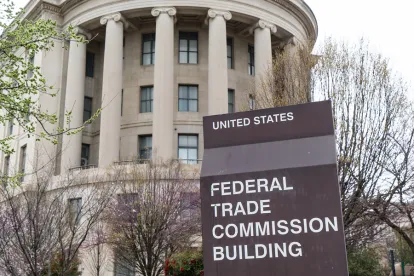What Happened
-
DTE and Enbridge’s natural gas pipeline joint venture, Nexus, agreed to purchase the Generation Pipeline (Generation).
-
Generation was owned by a group of sellers including North Coast Gas Transmission (North Coast).
-
Generation’s primary asset is a 23-mile pipeline that serves the Toledo, Ohio, area.
-
North Coast continues to own a competing pipeline near Toledo, Ohio.
-
The purchase agreement contained a non-compete provision that prevented the sellers, including North Coast, from competing in three counties surrounding Toledo, Ohio, for three years.
-
After an investigation, the FTC announced a settlement with DTE, Enbridge and Nexus to remedy the FTC’s concern with the non-compete provision by requiring the purchase agreement to be amended to remove the non-compete provision.
-
The FTC Commissioners were unanimous in their conclusion that the challenged non-compete was unlawfully broad, though several Commissioners issued concurring statements regarding the import of the FTC’s action in this case.
What this Means
-
The FTC settlement demonstrates that non-compete clauses, which often serve an important role in transactions, are not immune from antitrust scrutiny.
-
The Commissioners unanimously agreed that the non-compete was too broad because it would result in less competition than existed prior to the sale. Before the sale, Nexus and North Coast competed with each other in the Toledo, Ohio, area, but North Coast would have been barred from competing with Nexus post-transaction, even with the other pipelines it was not selling.
-
The Commission explained that the challenged non-compete was not limited in scope to protect a legitimate business interest such as to protect significant intellectual property, goodwill or customer relationships necessary to protect a Buyer’s investment.
-
As Commissioner Wilson’s concurring statement makes clear, there are often valid reasons for parties to a transaction to negotiate non-compete clauses—a buyer making a significant investment in a business unit may be reluctant to purchase a business only for the seller to turn around and start a new business to compete away the sold business’s value.
-
-
In these contexts, the ease with which a new firm could enter the market and compete with the sold assets is an important factor in ascertaining whether a non-compete clause is reasonably limited to protect a significant business interest—where entry is relatively easy, the risk that the purchased assets’ value may decline precipitously in response to new competition from the seller may be high.
-
However, where barriers to entry are high (as the FTC alleged was the case in the natural gas pipeline industry), the risk of new competition—and thus the need for a non-compete to protect a legitimate business interest—may be relatively low. In the FTC’s words, “[a] mere general desire to be free from competition following a transaction is not a legitimate business interest.”
-
As Commissioner Wilson noted, non-compete agreements have a long history in American law, and have long been upheld where reasonably tailored to protect legitimate business interests. Quoting an 1898 opinion by then-Judge (and future-Justice) Taft, Commissioner Wilson writes that “covenants in partial restraint of trade are generally upheld as valid when they are agreements . . . by the seller of property or business not to compete with the buyer in such a way as to derogate from the value of the property or business sold.” See United States v. Addyston Pipe & Steel Co., 85 F. 271, 281 (6th Cir. 1898) (Taft, J.), aff’d in relevant part, 175 U.S. 211 (1899).
-
The FTC’s two Democratic Commissioners, Commissioners Chopra and Slaughter, also issued a concurring statement that espoused a different view of the role of non-compete clauses in sales agreements. Commissioners Chopra and Slaughter wrote that “[t]oo many firms impose non-compete clauses to avoid the discipline of a functioning marketplace. The FTC should always be skeptical of non-compete agreements that unnecessarily suppress competition. . . . The Commission should continue to closely scrutinize contract terms that impede free and fair markets.”
-
This view of non-compete agreements in the mergers and acquisitions context could signal a shift in the depth of scrutiny the FTC will apply to non-compete clauses in the future if the balance of the Commission were to change.
-
At bottom, companies considering negotiating for a non-compete agreement as part of an asset sale or acquisition should be mindful of the purpose and scope the clause is designed to further. Non-compete clauses can be valuable additions to a commercial transaction, but they must be reasonably tailored to protect a significant business interest, such as intellectual property, business goodwill or customer contracts, rather than merely to limit competition post-transaction. Ensuring a close tailoring between the business interest served and the scope of the non-compete clause can help manage the risk that a business transaction will be challenged by the FTC going forward.





 />i
/>i

